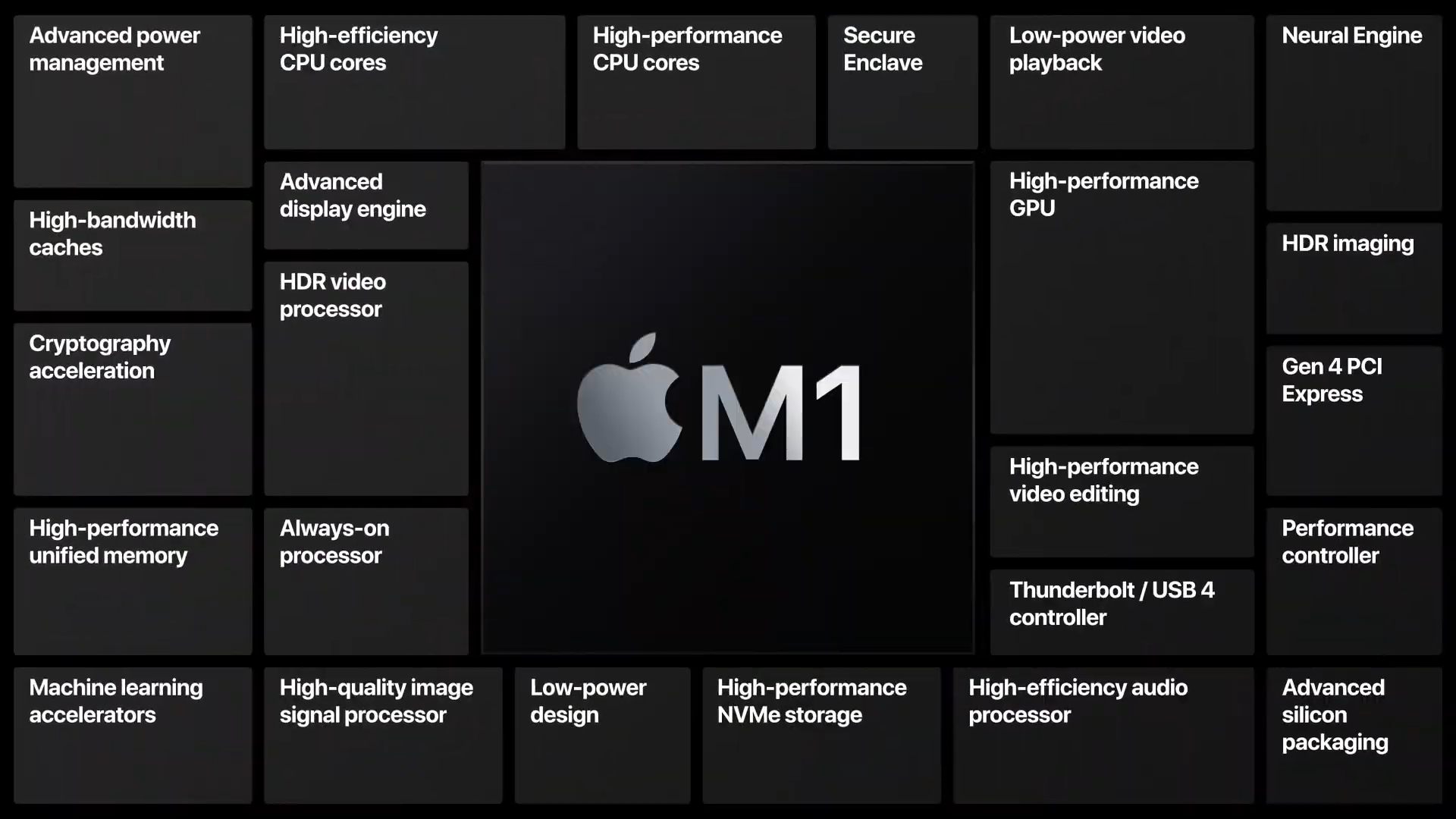- PCWorld pitted Apple’s M1 against Windows on ARM.
- M1’s SOC based on ARM architecture.
- Apple’s M1 Silicon won with an impregnable lead.
Apple introduced its proprietary System on a Chip (SoC) Apple M1 on November 10 this year in an Apple Event. While announcing the SoC Apple compared its latest M1 chip only with its own Mac running Intel Chipset. This led to curious testers at PCWorld to test whether Apple’s M1 is any match to the other side of the fence, Windows on ARM.
Windows on ARM was announced by Microsoft way back in December 2017. The Operating System is optimized for the low powered Chipset based on ARM architecture. Qualcomm was the provider for ARM-based Chips for the Microsoft PC and the Operating System was almost similar to Windows 10 with some layers on top for sustainable performance on less powerful hardware.
Qualcomm’s own processors, such as the Snapdragon 8cx and Snapdragon 8cx Gen 2, as well as the derivative SQ1 and SQ2 processors Microsoft co-designed with Qualcomm, was the only available processor. The latter two processors both appear in Microsoft’s Surface Pro X tablet.
The Differences.
PCWorld was quick to point out that Microsoft has a disadvantage of only supporting 32-bit X86 software and was unable to run native 64-bit applications designed for Windows for Intel or AMD processors. Whereas, Apple was quick to adopt the faster standard of 64-bit applications. Apple dropped support for redundant 32-bit applications in favor of faster 64-bit applications back in 2019 with macOS Catalina.
Apple also unveiled Rosetta 2 for Apple M1 for translating software code running smoothly for Intel Macs to run smoothly on Apple Silicon.
Tests
PCWorld chose Microsoft’s Surface Pro X running on SQ1, a powerful derivative of Qualcomm’s 8cx. And Apple’s Macbook Air with M1 chip. Also, an additional HP Pavilion x360 Convertible running on Intel i5-1035G1 for comparing across the range.
-
GeekBench
Geekbench is a benchmarking software that tests both a CPU and GPU, with a “compute” benchmark.
Although, the latest version of Geekbench 5 couldn’t accommodate the SQ1 in the GPU test therefore no results were obtained by PCWorld.

Image Courtesy: PCWorld.
As per the GeekBench, Windows on SQ1 is no match to Apple’s M1 MacBooks processing speed and also cannot keep up with Windows for Intel.
-
HandBrake
HandBrake is an open-source video transcoding tool and a popular benchmark.
PCWorld used recent version 1.4, which is written specifically for macOS, to accommodate the new M1 processors, and 1.33, for our Windows test.


















